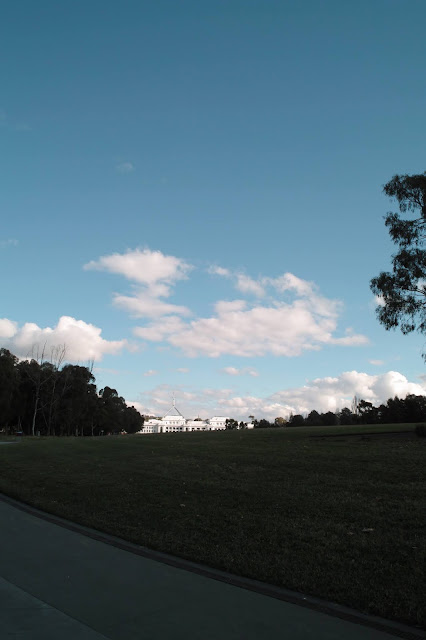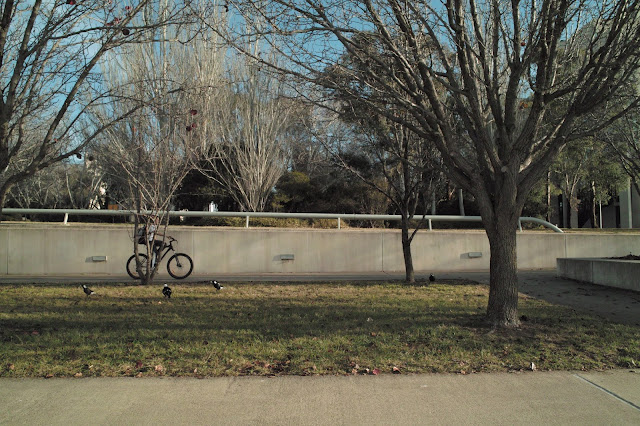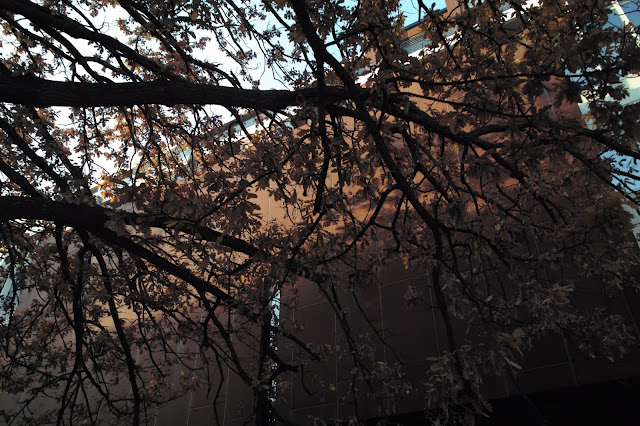SPEECH TO ILLAWARRA NOWAR RALLY
11AM WOLLONGONG MALL
SATURDAY 3 JULY 2004 Towards a constructive international policy DENNIS ARGALL
Formerly Ambassador to China.
We are here today because we believe that what has been done in our names is morally, politically and strategically wrong. We are also here today to say that those leaders, who took a badly governed country, invaded it and made it ungovernable, have no right, no track record to argue that we should ‘stay the course’. They do not make things better by staying. They should get out. Now. They express no awareness of error. We grant no blessing of support now. We reject the idea of ‘pre-emptive’ war - the notion that one country or group of countries can solve international tensions by attacking another country on their own judgement. We reject the idea that the problems of the world can be solved by rushing to the use of force. We reject the idea that you can have a ‘War on Terrorism’. Terrorism is a real risk here in Australia — and much, much more so in other countries. But terrorism is not a cyst or growth that can be cut out. It arises from despair and alienation, from loathing of the privileged by the disadvantaged, from clash of cultures. From resistance to domination by a global system that not only imposes economic values but pervasive invasion by culture and information which overturns all local social principle in its path. It arises, above all, from examples of violence. We cannot make good, make security, out of our own violence. We cannot surgically remove such a problem by military action. The injury to the United States on September 11, 2001 was profound. Far beyond the cost of lives on the day. Poisoning the American soul. Here is a nation, like Australia – and Britain – isolated by sea from sharpest realities of international dealing. With a foreign policy, like ours, driven by posture and rhetoric more than the reality and shoulder bruising of life along borders with different people. At home with self-importance, at home with big posture, profoundly secure in self-esteem, but now suddenly profoundly insecure. A single superpower for a decade now, seeing virtue only in the light from TV images of itself, uninclined to accept jurisdiction and moderation by international opinion. As European kings were once surrounded by a so-called ‘Divine Right of Kings’, so the United States had clothed itself in a ‘divine right’ to be unopposed. Which was devastated. The historical parallel is with August 1914, the beginning of the First World War, with the assassination of an Austrian Archduke by Serbian rebels. An act as wicked in the terms of 1914 as the attack on the World Trade Centre in 2001. An assault on divine right. On each occasion, there followed a resort to moral outrage on the one hand, and the unleashing of cynical, narrow perspective machinery of military response on the other. In 1914, no one said “this is World War One”. No one imagined it would last four years, chew up millions of lives, produce revolutions, create the Soviet Union, grind down the conquered state of Germany and lay the ground for another world war 20 years later. Our present situation is not just like following or obeying or egging on the United States in Vietnam. This is much more terrible than that. This is indeed a new world war, one which is no better comprehended than was what happened in 1914 then. In 1914 and again in 2001, there was a rush to alliances, a taking of sides that polarised and made more enemies and closed avenues for peace making and conflict resolution. In 1914 and again in 2001, there was expectation of swift victory — the French in 1914 shut down arms factories to hurry men to the front. Today United States military forces are being unsustainably chewed up at reserve as well as regular level by longer-than-planned war. In 1914 and again in 2001, there were flushes of nationalistic fervour and there was castigation of opinion opposed to war policy. Let us remember that Keith Murdoch, Rupert Murdoch’s dad, his inspiration, achieved greatness by his journalistic campaign that reversed policy and produced withdrawal from Gallipoli. We did not stay the course there. We call on the media to take a stand against closing down the vocabulary of public debate. We reject the idea that you can have a free press if it just follows the drumbeat of the War on Terrorism. In 1914 and again in 2001, there was only a war policy, only a bunch of advisors with maps and war plans and notions of taking the war to the enemy. If you only plan for war, war is all you can get. We reject the idea that war is the only option. In 1914 and again in 2001, there was no real thought that there were issues to be resolved between the rich and the poor, to resolve disadvantage, to redress the balance between those who consumed most of the world’s resources and dictate terms in world affairs and those who had no such share of resources and who resent being dictated to. We reject the idea that the United States or Australia has a divine right to shape the world. We affirm our readiness to listen to people with different voices from different cultures and to learn from their wisdom. In 1914 and over the years that followed, as in 2001 and years that follow it, we see political leaders create a situation where they must remain consistent with already failed strategy. They must chew up more lives, because to do otherwise risks not just their own positions but the whole posture and shape of state power they have built up to reinforce their strategies. So much so, that rivals, like Bob Carr - and even the rock singer - have to speak the same language, have to say yes they will fight the War on Terror, otherwise they themselves fear being political losers because the whole political vocabulary has been distorted by fear and misinformation. We say to ALL political leaders this: we reject the macho thick-skull notion that you can’t change your mind. We will support you in any pursuit of sane new policy directions to other than war. Let us always remember the gift of the lives of young Australians in earlier wars, for their country. But let that not obscure the fact that such lives were lost not on the basis of those young men’s strategic decisions, but those of their national leaders. Let us, as so many old diggers quietly ask, use the memory of war to AVOID more war. Why do we not use these remembrances to ask what politicians have learned? If we send people out to die needlessly, we are not respecting those dead, we are spitting in their faces. We reject the idea that wasting more lives gives any respect to the sacrifices of those who died before. I am just a little younger than the Prime Minister. We are both children of the Menzies Era. We both were too old to be caught by the Vietnam conscription. John Howard is not a fool, and was mature and involved with politics at that time. Did you learn nothing during Vietnam, Prime Minister,from what happened then? Were we not given a lesson on how wrong strategic wisdom could be? Were we not shown how limited in value was the exercise of preponderant military force? Did it not become painfully obvious that persisting in a war where you are unwanted produces more enemies and more mess with every extra killing. The philosopher of war Clausewitz said, 200 years ago, that war is an instrument of policy. That gets remembered by statesmen. What they seem to forget, over and over again, is that Clausewitz went on to warn that war, once embarked upon, drives out policy and pursues its own ends. War drives towards the extreme, to barbarism, to destruction. We reject the War on Terrorism, we call for sensible constructive international policy. ======== Rage is easy, painting historical parallels is easy. What is hard is to know where to go from here. We will have to work out what to do next. This is a collective task in a democracy. Let me venture some broad ideas as a start point: FIRST: we should be very wary of people of whatever hue who say they have the absolute truth. Not because there is no truth available, but because truth is individual. I hold passionately to my beliefs, you hold passionately to your beliefs. But this is a crowded world now, even here on the south coast, and if we do not put first an ethic of dealing as community with each other at grass roots level, we will never be able to deal sensibly with international issues. Fundamentalisms, fanaticisms, uncompromising pursuit of whatever absolute belief is what will kill us all. SECOND: We should avoid shallow moral relativism. We do not ask that asylum seekers be treated well because we think they are all bonza blokes. We demand that they be treated decently because we expect this country to maintain decent moral standards generally. We do not want to know that the way our lot torture prisoners isn’t as bad as the other lot’s torturing. We don’t want to know that an unjustifiable war was ok because Saddam was a bad guy and the Iraqis didn’t need him. We want just international behaviour because there is no boundary between international and domestic behaviour. If we behave unjustly and poisonously abroad, our own society is poisoned and becomes more unjust. Violence abroad feeds into violence at home and in the home. THIRD: We deny that an alliance demands acquiescence. We decline to accept that two or three democracies can, as allies, embark on international adventures which defy any democratic principle, which impose will, which are narrowly military in their design and perspective, without poisoning our democracies at home. But we can’t just blame the Americans if they think the natural perpetual Australian stance is that of toadying. There are other ways to conduct an alliance relationship, as a wise and sensible and steadying friend. If such an approach were rejected by our major ally, then what value is the alliance? FOURTH: We ask that the cost of war fighting be compared with the costs of doing things to alleviate conditions in the Third World and doing things in the developed world to reduce our gross consumption of resources — that people try to find their way back to sanity. How can it be smarter to fight and fight and re-equip fighting forces, while holding it to be too hard, too risky, too wasteful to resolve the problems of Third World debt and industrial world resource consumption. Why do we point to the risk of waste in generous policies, while being extravagantly wasteful in military matters? FIFTH: We do no deny that there are evil men in terrorist movements, but we ask for understanding that the so-called War on Terrorism will increase the number of terrorists and increase their vividly imaginative ways of stirring us up. SIXTH: In the present climate, the Moslem community has been under attack. If you do not have Moslem neighbours at whom to smile, I commend to you that you seek opportunity to do something practical. When I go to Sydney, I like to visit Lakemba, just to be a smiling face and to do ordinary things like shop and bring custom and fair dealing to this community. The coffee, the food, the ice creams are well worth the visit. Take an interest. Browse the bookshops... We are here because we reject racism and despise racial hatred. Often though, we are shy of taking steps to advance this abstract notion to practical affirmation. Let’s not be shy about extending a friendly hand. FINALLY: We all know that we live in troubled times. It is not easy to see the way forward. It is easy to create fear of threats to security at all levels, to sell people insurance, to sell legal services, to sell home security, to sell a national security policy based on fear and suspicion. We are told a lie when we are told that if we do not accept this fear-based national security policy we are being isolationist. Nothing could be further from the truth. We believe that a national security policy can be based on a constructive international policy — policy not focussed on fighting but on building a more constructive world. The irony of the demand for us to conform to the narrow fear-based international policy is that it reflects fear on the part of political leaders of thinking more openly about the world. They are indeed like the politicians and generals of WW1 who fed a generation into the mincer of war because they feared looking and listening, they feared thinking, they feared learning. We are at a hinge point in world history now, a rare privilege. Now is a time and a chance for innovative policy, delivering at home as well as abroad a strengthening of democracy and community spirit, and perhaps even a return to trust in government. Without that, we will continue to fight each other. We are a rich and lucky country, we have no right to be mean spirited. We came here today because we reject such narrow and negative thinking. Let’s leave here determined to widen the language of public debate and saying —War is NOT inevitable. —We CAN and WILL pursue policies of peace and international understanding. —————ooOoo————— Dennis Argall 2004
02 4421 3840
| 






























